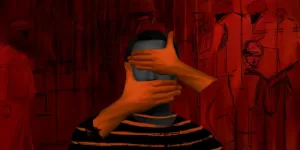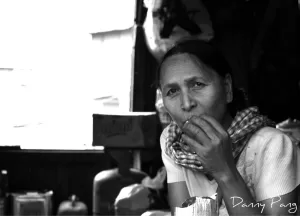Over the last several months, arguments challenging the constitutionality of the marital rape exception in Section 375 of the IPC had gripped the Delhi High Court. While the judgment in those petitions is still awaited, in one clean swoop Justice M. Nagaprasanna of the Karnataka High Court on March 23, 2022, in the case of Hrishikesh Sahoo vs State of Karnataka, pronounced the end of the marital rape exception.
The Background
This judgment was a result of a unique case where a woman had filed a criminal complaint of rape against her husband due to the repeated acts of sexual assault she had to face. The police registered her complaint under Section 376 notwithstanding the marital rape exception, a charge sheet was filed and the Sessions Judge took cognisance and framed charges under Section 376. The husband filed an application to drop the charge of Section 376 but the Sessions Judge rejected it. This led to the husband approaching the High Court seeking to quash the criminal proceedings.
In a nuanced and far-reaching judgment, Justice Nagaprasanna refused to quash the charge of rape against the husband. He held that if a man, being a husband is exempted for his acts of sexual assault, it would destroy women’s right to equality, which is the very soul of the Constitution. He held that the Constitution recognises and grants equal status to women, but the exception to marital rape in the IPC amounts to discrimination because a wife is treated as subordinate to the husband.
The Constitution considers marriage as an association of equals and does not in any sense depict women to be subordinate to men and guarantees women the fundamental rights under Articles 14, 15, 19 and 21 the right to live with dignity, personal liberty, bodily integrity, sexual autonomy, right to reproductive choices, right to privacy, right to freedom of speech and expression. He held that the exemption of the husband on committal of such assault/rape cannot be so absolute that it becomes a licence for commission of a crime; in provocative words he stated, “a man is a man; an act is an act; rape is a rape, be it performed by a man the “husband” on the woman “wife”, and refused to quash the case.
Modi & MMS govts’ stand
The Centre argues criminalising marital rape will destabilise the institution of marriage.
The J S Verma panel proposed that “the exception for marital rape be removed” and the law must “specify that a marital or other relationship between the perpetrator or victim is not a valid defence against the crimes of rape or sexual violation”.
A Parliamentary Standing Committee on Home Affairs headed by Venkaiah Naidu said, “the entire family system will be under great stress” should marital rape be criminalised.
When the Delhi High Court was hearing three petitions in August 2017, the government in its affidavit submitted that it had to be ensured marital rape did not become a phenomenon that destabilises the institution of marriage and “an easy tool for harassing the husbands”. It added, “What may appear to be marital rape to an individual wife, it may not appear so to others.” [Reference: ‘A far-reaching verdict that ends a regressive exception’, The Hindu, April 04, 2022]
Union govts under UPA & NDA and the Parliament placed the sanctity of the institution of marriage above the solemn rights guaranteed to women in the Constitution.
Woman is recognised as a property in our Dharma Sastras, Vedas and Manu. Women are not entitled to any rights. If a woman does not satisfy the sexual desires of her husband, she should be severely beaten. But the High Court verdict is ridiculing our Sastras. Can the court interfere in the religious beliefs of the majority people and hurt their sentiments? The court has totally failed to recognise the rights guaranteed to the other stake holders by our ancient scriptures as briefly listed in the concluding para of this article.
PM Modi, as desired by his Guru Golwalkar, should immediately scrap our Constitution and rewrite a new one based on our ancient Hindu Dharma Sastras and Manu. That will only satisfy the collective conscience of the majority people and save the Hindu religion in danger.
Status of woman as codified in our ancient scriptures:
- According to a popular ancient Sanskrit sloka, one of the six qualities of a Kula Dharma Patni: “Shayaneshu Rambha” (A wife in bed must excel Rambha, one of the apsaras of heaven).
- Bhishmacharya in Mahabharat says, “Woman is other’s property”.
- ‘O’ Aswini gods! please kill our enemies and fetch us their grain, cows and women. (Rig Veda – 01-30-17).
- ‘O’ Soma Ras (soma ras was the country liquor of those days) please kill our rich enemies and fetch us their wealth, cows and women. (Rig Veda – 9-1-3).
- Let the goat-riding, daily traveling Sun God serve us and give us beautiful women. (Rig Veda – 9-67-10).
- A Brahman male can have any woman in the universe. (Manu – XXVII-6 & 9).
- Sudras and women are unfit for education. It is not necessary that they should know the laws and codes, and hence need not be taught. Violaters will go to Asamvrita Hell. (Manu – V-78 to 81).
- Brahmans are to receive 16 types of donations. The first donation is virgin (shodasa mahadanas) (Gruhya Sutra).
- Every woman must be loyal, faithful, obedient, humble to her husband even if he is blind, deaf, dumb, old, physically handicapped, debauchelor, gambler, neglects his wife and lives with his concubine(s). If the husband is unhappy, it is the fault of his wife. If he cries, she should cry. If he laughs, she should laugh. She should eat only after her husband eats. If he beats her, she should not react, but fall on his feet and beg for pardon, kiss his hands and pacify him. If he dies, she should fall on his funeral pyre and die and go with him to the ‘other-world’ and serve him there in this manner. (Padma Purana).
- Women are fickle-minded. Never believe them. Friendship with a woman is just like friendship with a wolf. (Rig Veda 8-33-7).
- All women are born of sinful wombs. (Bhagavad-Gita IX-32).
- Women are the most faithless. (Manu XVII-12).
- Woman is the gate-way to hell. (Adi Sankara).
- If a woman had ten non-Brahman husbands, and then if a Brahman touches her, the Brahman becomes her real husband. (Sruti).
- A virtuous woman is one who dies on the funeral pyre of her dead husband and avail the privilege of serving her husband in the ‘other world’. (Atharvana Veda 18-3-1).
- Killing a woman, a Sudra or an atheist is not sinful. Woman is an embodiment of the worst desires, hatred, deceit, jealousy and bad character. Woman should never be given freedom. (Manu IX-14, 17 and V-14, 47).
- A girl must be under the care of her father, in youth under the care of her husband, and in old age under the care of her sons. She should never be free and independent. (Manu V-148).
- A Brahman male by virtue of his birth becomes the first husband of all women in the ‘universe’. (Manu III-14).
- Five husbands to a Hindu woman (Atri Smriti-190): Soma (Moon), Gandharva, Agni, Brahman and Husband. A bride’s first night is with Brahman as the first three are notional.
- If a woman does not satisfy the sexual desires of her husband, she should be severely beaten. (Brihadaranyakopanishad 6-4-7).
(Sankara Narayanan is a political commentator. Courtesy: Countercurrents.org.)




